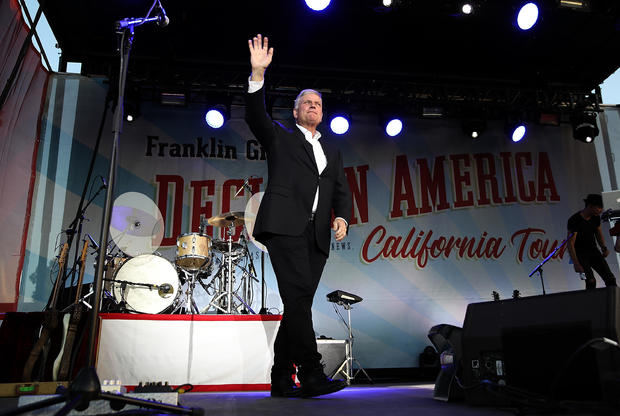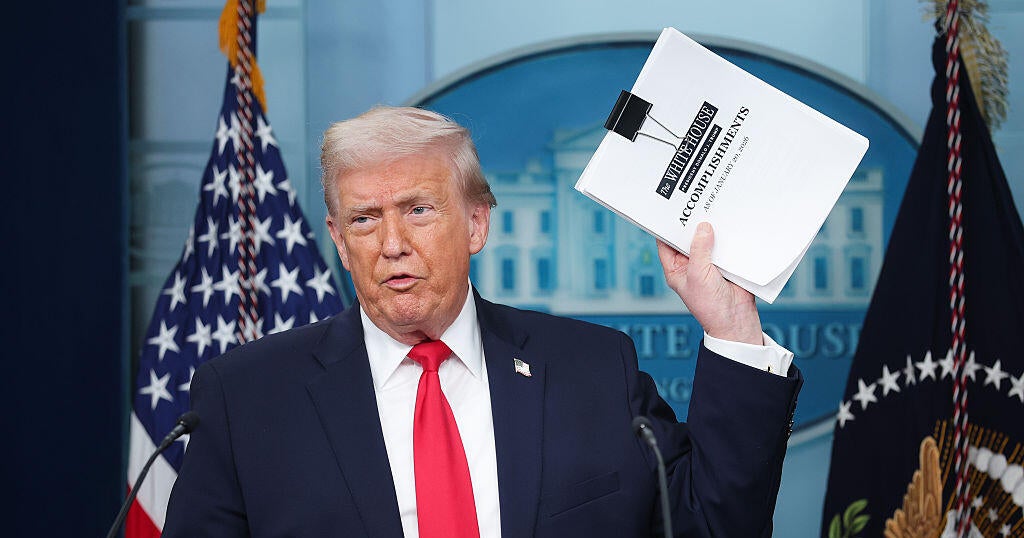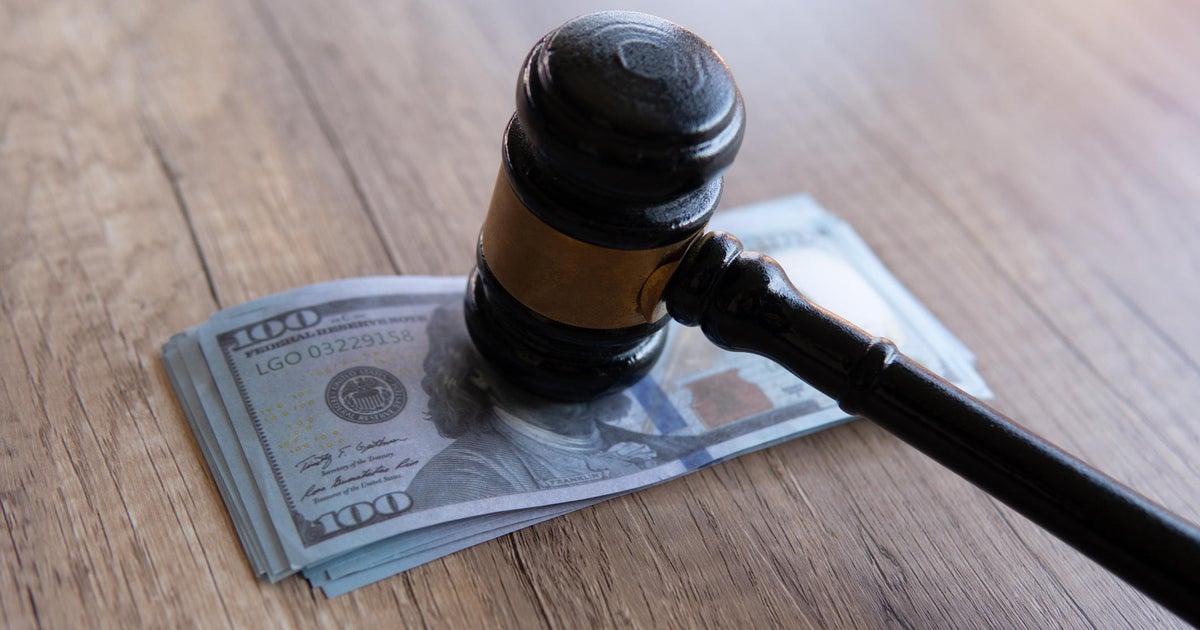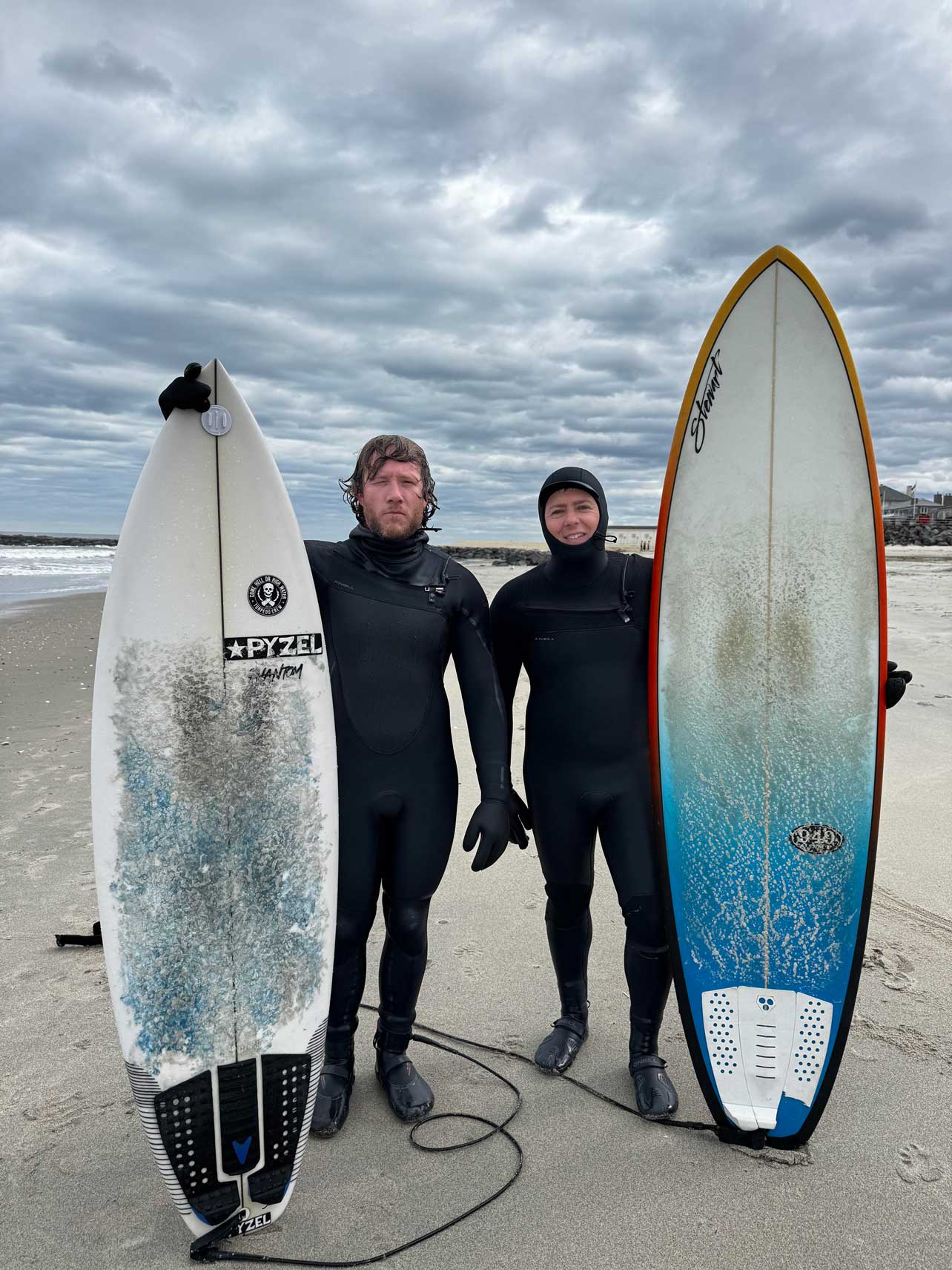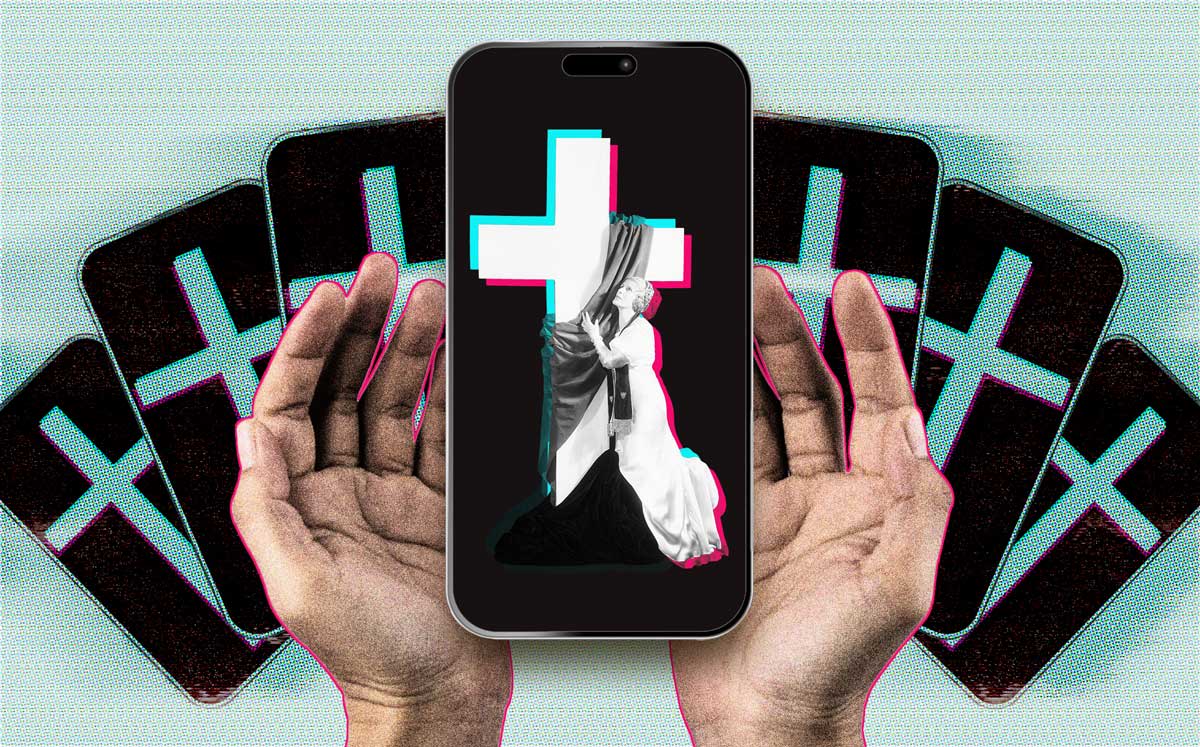Why "the pathway to ending the pandemic runs through the evangelical church"
Evangelical leader Franklin Graham believes Americans should get the COVID-19 vaccine. The missionary told CBS News that he thinks Jesus would want people to get their shots, and he's turning to Scripture and the parable of the Good Samaritan to make his case.
It's a case that will need to be made clearly if evangelicals — perhaps the most under-discussed group with high levels of vaccine hesitancy — can be persuaded.
"Jesus does tell the story of a man that was beaten and robbed and left for dead on the side of a road, and religious leaders walked past him and did not have compassion, they didn't get involved. But a Samaritan had compassion," Graham told CBS News in an interview. "And he immediately bandaged — he put oil and wine on his wounds and took him to an inn, and paid to have him cared for. Now the oil and wine were the medicines of that day ... The vaccine is, to me, I believe, is saving life, and that's what Jesus Christ would want us to do, to help save life. It's just a tool to help save life."
Graham, the son of the late evangelist Billy Graham and grandson of a medical missionary in China, noted that the church has a long tradition of using medicine to help others. Last week, he told his 9 million Facebook followers that his international relief charity, Samaritan's Purse, had seen human suffering from COVID-19 "first-hand," and encouraged people to "talk to their doctor, and pray about it to determine which vaccine, if any, is right for them."
While thousands of users liked and "hearted" the post, most commenters reacted with indignation or dismay.
"As far as we know, Fauci helped develop COVID-19!!" one wrote, referring to the director of the U.S. National Institute of Allergy and Infectious Diseases, Anthony Fauci, who is also President Joe Biden's chief medical advisor.
"The government and the media created insane fear over this flu — flu of certain death motivated people to comply like sheep," wrote another.
"It has aborted cells in it… I am against abortion," responded another woman.
Though anecdotal, the responses underlined a trend. Evangelicals, especially white evangelicals, are the religious group most likely to say they do not want the vaccine.
A Pew Research Center survey conducted in February found that white evangelicals were the least likely religious group to say they will "definitely or probably" get the COVID-19 vaccine (54%), or already had, and the most likely to say they "definitely" or "probably" would not get the vaccine (45%). That's out of all Protestants, White and Black, White and Hispanic Catholics, atheists, agnostics and "nothing in particulars."
Understanding why that is, and encouraging those who might be persuadable, could save lives as the country works to reach herd immunity, which Fauci estimates will requires 70% to 90% of the population to be vaccinated. So far, roughly 17% of the U.S. population is fully vaccinated.
Curtis Chang, a former senior pastor who's now a Duke Divinity School consulting professor and runs his own consulting firm working with public health entities and nonprofits, has created a project called Christians and the Vaccine. His website offers scientific information on the vaccine from a biblical perspective, in bite-sized, shareable videos to reach evangelicals who aren't being persuaded by public health officials.
"The message I've been trying to get to secular public health officials is very simple — it's that the pathway to ending the pandemic runs through the evangelical church. I mean, it's just undeniable statistically," Chang said in a phone interview with CBS News. "And public health has got to start investing resources and energy to equip evangelicals to be the ones out there trying to convince their fellow brothers and sisters."
Graham hoped his post might persuade Christians who are on the fence about getting a shot, which he considers a "no brainer." In partnership with local health officials, Samaritan's Purse runs a vaccine clinic in Boone, North Carolina, which has already vaccinated more than 5,000 people.
"Samaritan's Purse has been working in COVID areas," Graham told CBS News. "Last year, we were in Cremona in Italy. We were working in New York City. And then we went on to the Bahamas and opened up another one here in North Carolina, then Los Angeles County. We have seen what COVID can do. I've had some of my own staff, one of them was on a ventilator for three months. And I'm just, from what I have seen and experienced myself, I don't want COVID and I don't want anybody else to get it."
The reasons for vaccine hesitancy among evangelicals are manifold. Some object to the distant connection to aborted fetal tissue, particularly with the Johnson & Johnson vaccine. Some distrust the federal government and big pharma. Still others point to the statistical likelihood that a person will recover from COVID, and Jesus as the great healer. Some fear it is the "mark of the beast," a reference to a symbol in the Book of Revelations. The lack of long-term clinical trials and other uknowns about long-term effects are also a concern for many.
One Christian who doesn't want to get the vaccine on religious grounds is Othneil Hinckson, an evangelical pastor in Texas whose family generally relies on prayer rather than medicine to get over illness. He believes COVID-19 is real and that it's a serious disease. But for him, COVID-19 is no different than other illnesses, and believers can be healed through the power of prayer. Hinckson may be among a small minority of evangelical communities that generally avoid medical intervention in favor of divine healing, but his beliefs are firm.
"Any vaccine, as far as I stand, I don't need it, because I have something better," he told CBS News. "When man heals you, there's always the possibility of complications… It's hard to explain, but we're doing our best to trust God with everything we are."
He said his family has so far avoided the illness, and he isn't aware of anyone in his congregation who has fallen ill with COVID-19.
Graham said he understands concerns about a new vaccine, and said there will always be skeptics on any issue, not just among Christians.
"I think people are scared of new things," Graham said. "Especially when it comes to somewhere where you take a jab in your arm and they put a serum or vaccine into your arm. I think there are always people who will be afraid. So I don't fault them, and I certainly understand if they have concerns. And I think my statement was just for people that may be on the fence a little bit. I just want them to understand where I was coming from and why I took it. But I'm certainly not telling others that they have to take it. It's just, I think it's a good health decision. Again, I have seen COVID and what it can do to a person, and you don't want it. It's just as simple as that."
Chang started his project in late December, after a conversation with the CEO of a leading health agency in the Bay Area who either had never heard of, or didn't realize the significance of concerns specific to evangelicals surrounding the vaccine. He realized that public health professionals lacked the language to communicate with the evangelical community, and the evangelical community, in turn, at times didn't trust public health officials.
"Secular public health [officials] are going to pump out all sorts of scientific and medical information, which is necessary," Chang said. "That's an important piece of the puzzle — it's not like it doesn't matter. But there's this whole other set of spiritual, religious, moral, cultural concerns that they just don't have the language or understanding to speak to. So they're going to be, basically, it's like putting out steak to a vegetarian."
So Chang, who was already concerned that evangelicals might not accept the vaccine given the politicization of the mask issue and backlash over church restrictions, launched ChristiansAndTheVaccine.com.
"I have produced these videos, with each video trying to address one of the questions that I think especially secular public health was going to have a difficulty addressing," Chang said. "The reason why I put it in short video formats was, if you go on in terms of how misinformation is spreading on this issue, it's happening by short videos being passed along by person to person within their own networks. So that's how the misinformation is spreading and it's spreading virally."
Chang hopes his project will serve as a particularly useful resource for pastors, who might not want to preach on the hot-button subject or get pulled into lengthy email discussions with members, but might be able to share a short, informational video. Evangelical leaders are more likely than their congregants to say they'll get the vaccine. According to a January Evangelical Leaders Survey, a whopping 95% of evangelical leaders who responded said they would get the vaccine, and 89% said they would encourage others to do the same.
"The reason why I'm creating these videos is so that pastors didn't have to go up on Sunday morning and preach about it," Chang said. "They could just, when they get the question, they can just say, 'here, watch this video.'"
Public health professionals are slowly beginning to pick up on the importance of addressing vaccine hesitancy among evangelicals, Chang said.
On Thursday, the Ad Council announced a new partnership with the COVID Collaborative and Chang's project, ChristiansAndTheVaccine.com, and other evangelical groups to try to reach evangelicals with information from people they trust about COVID-19 vaccines. The Biden administration has begun to realize the importance of reaching evangelicals, too, and has started partnering with faith leaders to help them reach their congregants.
"This is a chance for us to really be good citizens of the world," Chang said. "As evangelicals, if we allow the virus to replicate unchecked within our own community — even if we think, 'Okay, we're willing to tolerate that risk,' we're allowing the virus to continue to replicate, and that is precisely the recipe for developing variants in this virus that can eventually get around the vaccine and ruin it for everyone else."
